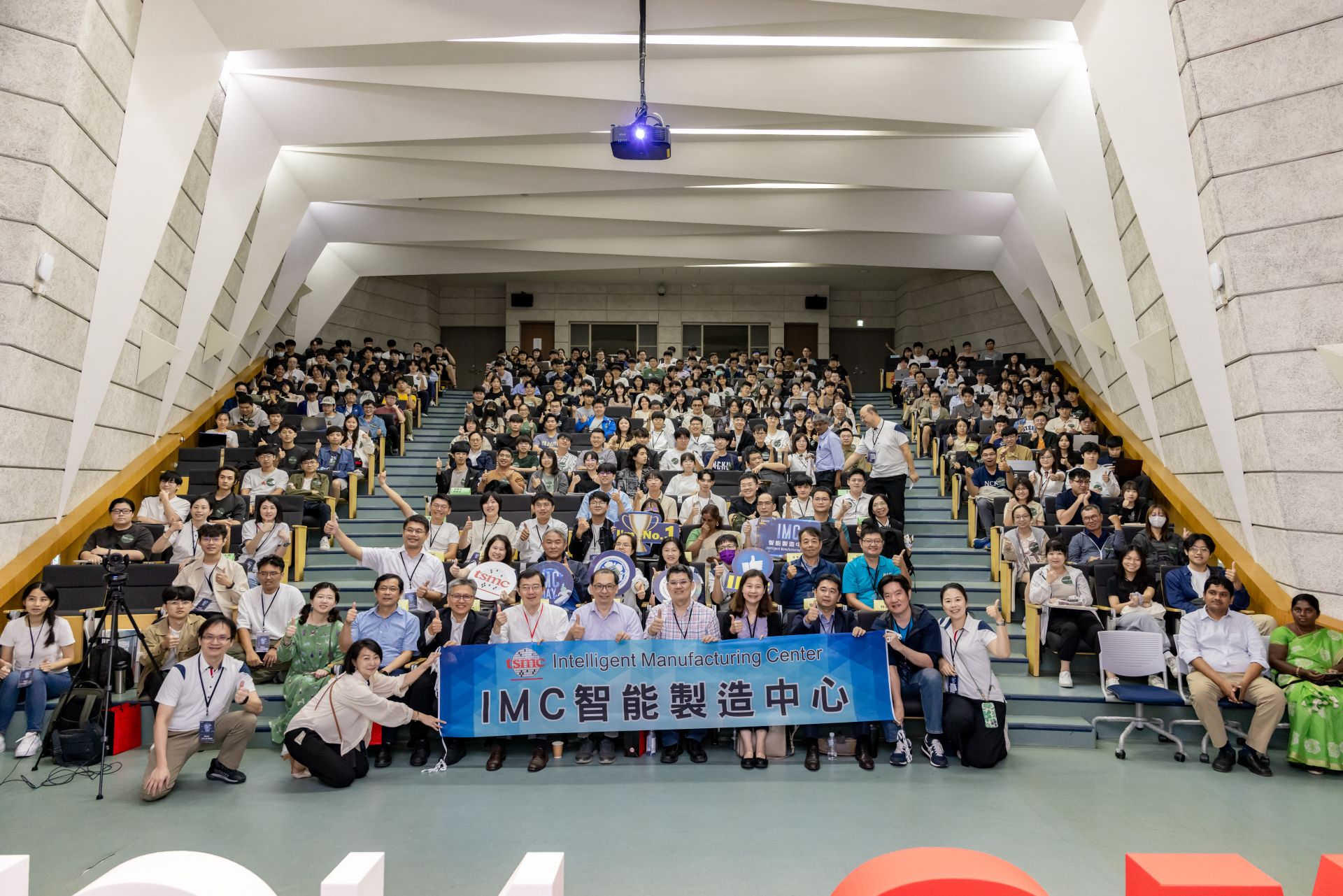Edited by and images credit to News Center.
Gyrocopters have become popular in recent years; they have been applied to construction, agriculture, and telemetry, among others. In order to manage control instability under dynamic movement, Yen-Chen Liu, a professor at the Department of Mechanical Engineering in National Cheng Kung University, led his team to develop a new type of decoupled control architecture, combining deep deterministic policy gradient (DDPG) with typical control strategies. The gyrocopter and the robotic arm connected below it are controlled separately to reduce the impact of heavy loads, effectively improving overall system performance.
Gyrocopters are commonly used to carry cargo, which requires the installment of a mechanical arm under its chassis. In addition to controlling the flight direction of the main body, it is also necessary to adjust the angle, direction, and gripping function of the mechanical arm. There are many control parameters, which leads to large and complex mathematical models. The movement of the mechanical arm also affects rotorcraft stability, causing abrupt changes in attitude.
To overcome these limitations, Professor Liu Yanchen’s team utilized machine learning to propose a decoupled control architecture. The gyrocopter and the robotic arm are separated into two independent systems. Not only is the model relatively simple; it also effectively improves computing efficiency, allowing the machine to respond more quickly to commands, accurately grasping objects and reaching the positioning point. The robot arm is used to complete the goal, greatly improving overall operation quality. This breakthrough research was published in the top international journal IEEE Transactions on Cybernetics in August 2022.
Liu’s team first established a gyrocopter model through the virtual robot experimental platform “V-REP” and used DDPG to carry out reinforcement learning. This allows the agent to interact with the surrounding environment and try to obtain the maximum reward with different behaviors. They then installed the completed module in the gyrocopter for testing.
Compared with general ground-based unmanned vehicles, the gyrocopter has a high degree of flexibility and is able to maneuver in three-dimensional space, unbounded by restrictions in terrain. This enables diverse applications such as aerial photographic detection and disaster relief work at inaccessible locations such as dense jungles, steep cliffs, river valley bridges, and open sea. It can also be applied to hazardous manual work such as cleaning the outside of tall buildings. For construction, simultaneous operation of multiple gyrocopters enables streamlined handling of steel bars and other building materials.
Gyrocopters have become popular in recent years; they have been applied to construction, agriculture, and telemetry, among others. In order to manage control instability under dynamic movement, Yen-Chen Liu, a professor at the Department of Mechanical Engineering in National Cheng Kung University, led his team to develop a new type of decoupled control architecture, combining deep deterministic policy gradient (DDPG) with typical control strategies. The gyrocopter and the robotic arm connected below it are controlled separately to reduce the impact of heavy loads, effectively improving overall system performance.
Gyrocopters are commonly used to carry cargo, which requires the installment of a mechanical arm under its chassis. In addition to controlling the flight direction of the main body, it is also necessary to adjust the angle, direction, and gripping function of the mechanical arm. There are many control parameters, which leads to large and complex mathematical models. The movement of the mechanical arm also affects rotorcraft stability, causing abrupt changes in attitude.
To overcome these limitations, Professor Liu Yanchen’s team utilized machine learning to propose a decoupled control architecture. The gyrocopter and the robotic arm are separated into two independent systems. Not only is the model relatively simple; it also effectively improves computing efficiency, allowing the machine to respond more quickly to commands, accurately grasping objects and reaching the positioning point. The robot arm is used to complete the goal, greatly improving overall operation quality. This breakthrough research was published in the top international journal IEEE Transactions on Cybernetics in August 2022.
Liu’s team first established a gyrocopter model through the virtual robot experimental platform “V-REP” and used DDPG to carry out reinforcement learning. This allows the agent to interact with the surrounding environment and try to obtain the maximum reward with different behaviors. They then installed the completed module in the gyrocopter for testing.
Compared with general ground-based unmanned vehicles, the gyrocopter has a high degree of flexibility and is able to maneuver in three-dimensional space, unbounded by restrictions in terrain. This enables diverse applications such as aerial photographic detection and disaster relief work at inaccessible locations such as dense jungles, steep cliffs, river valley bridges, and open sea. It can also be applied to hazardous manual work such as cleaning the outside of tall buildings. For construction, simultaneous operation of multiple gyrocopters enables streamlined handling of steel bars and other building materials.
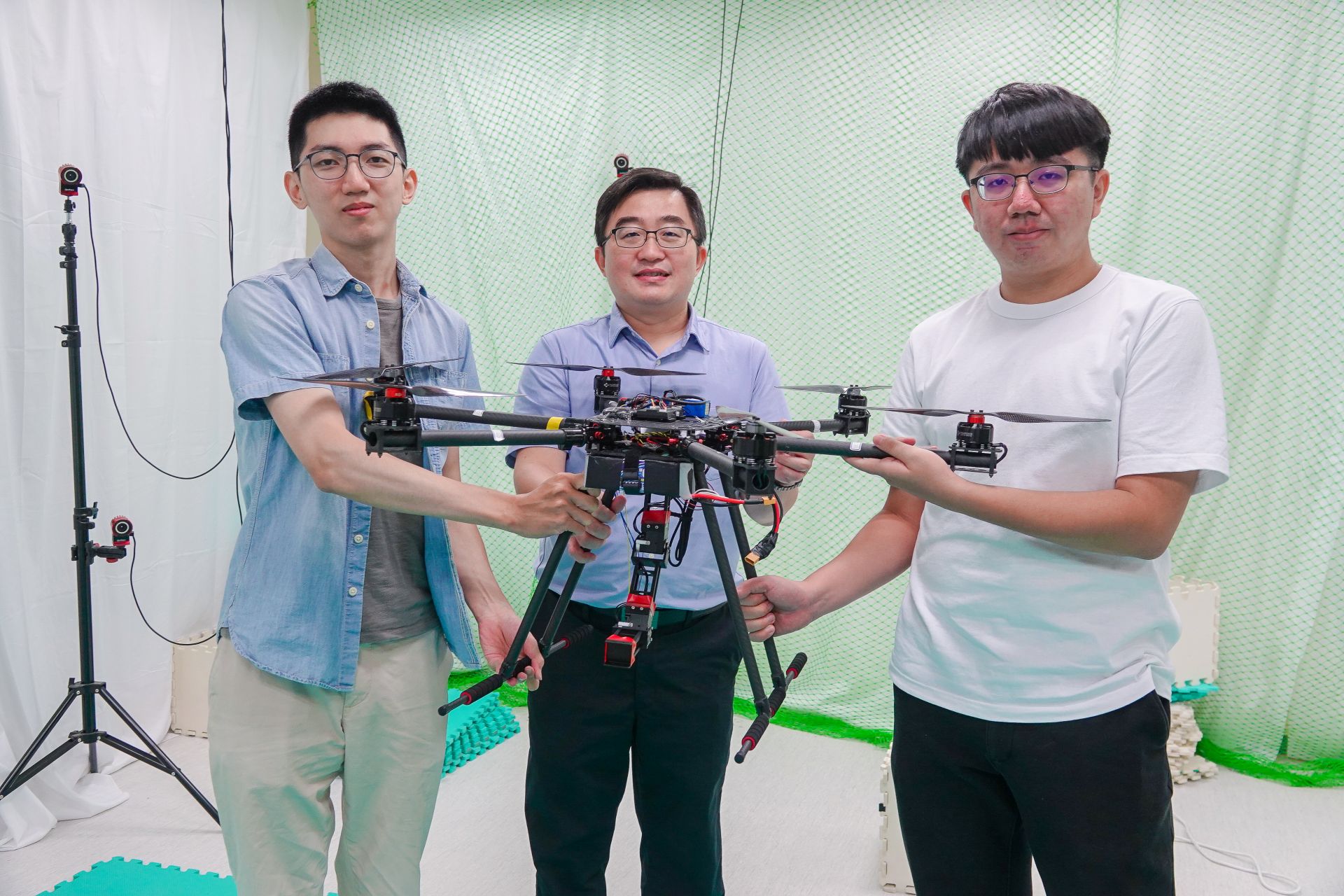
Professor Yen-Chen Liu (middle) and his team proposed a new type of unmanned rotorcraft architecture based on machine learning.
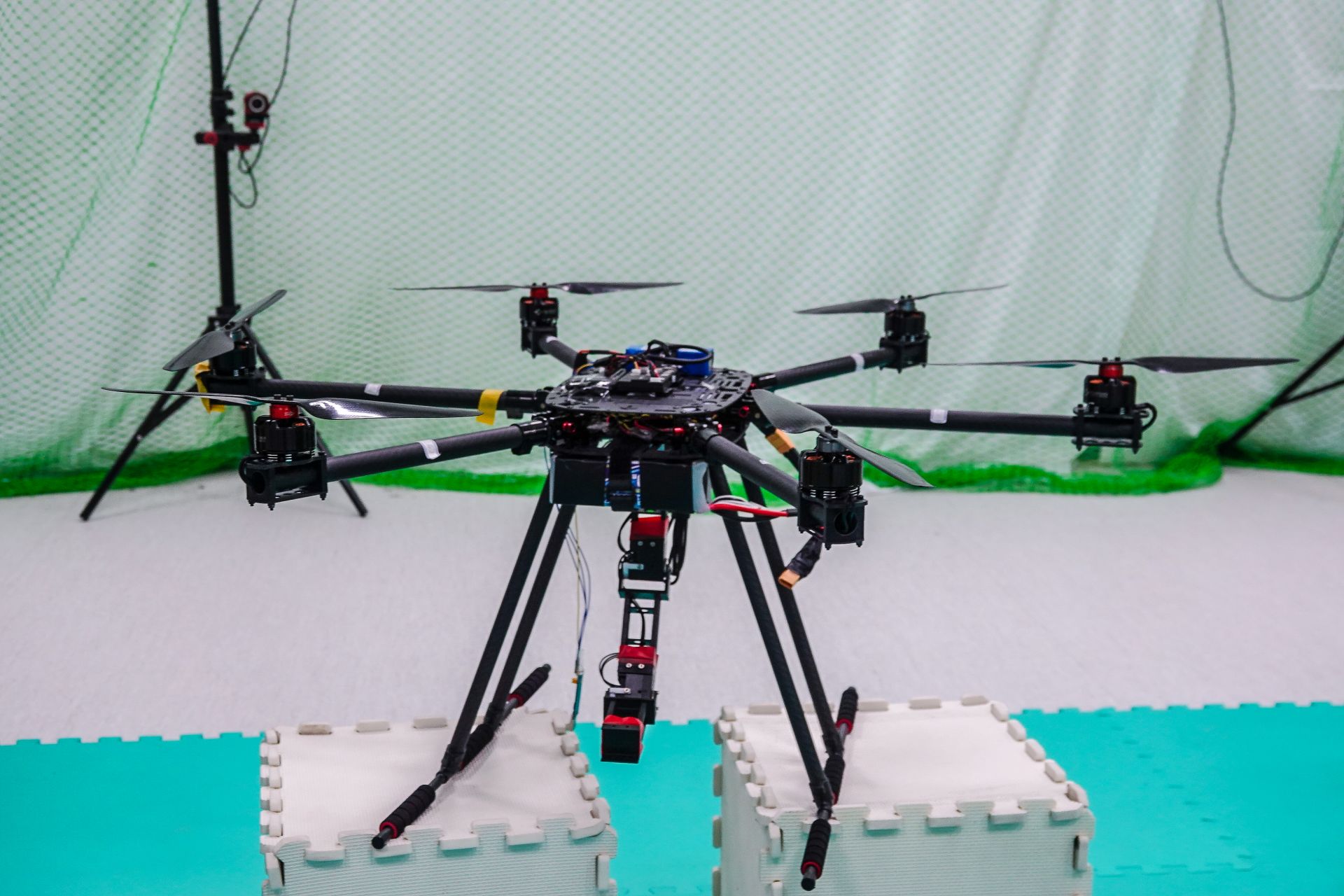
For traditional models, in addition to adjusting the flight direction, it is also necessary to adjust the position of the mechanical arm.
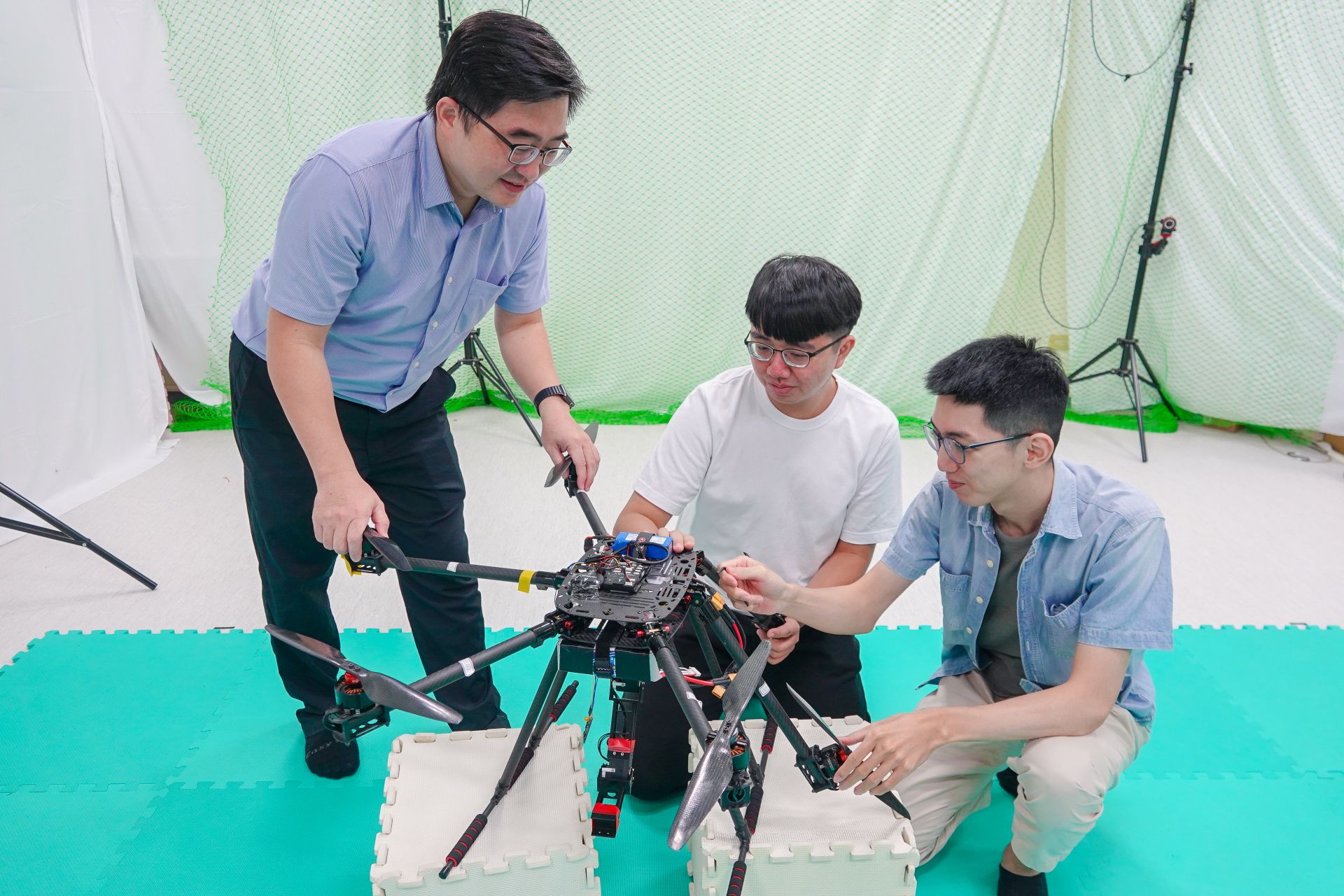
The team improved rotorcraft performance using deep learning.
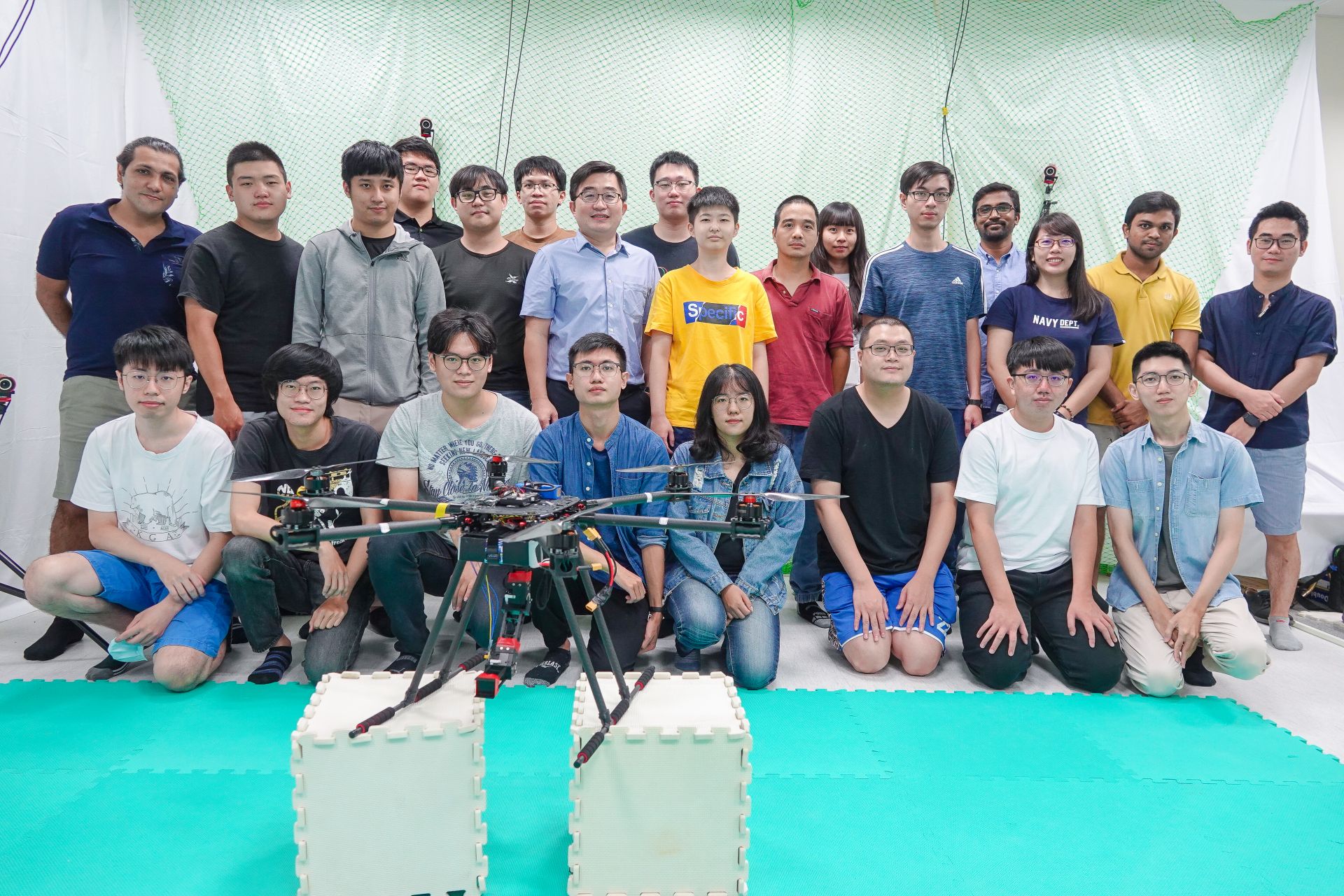
The team improved rotorcraft performance using deep learning.
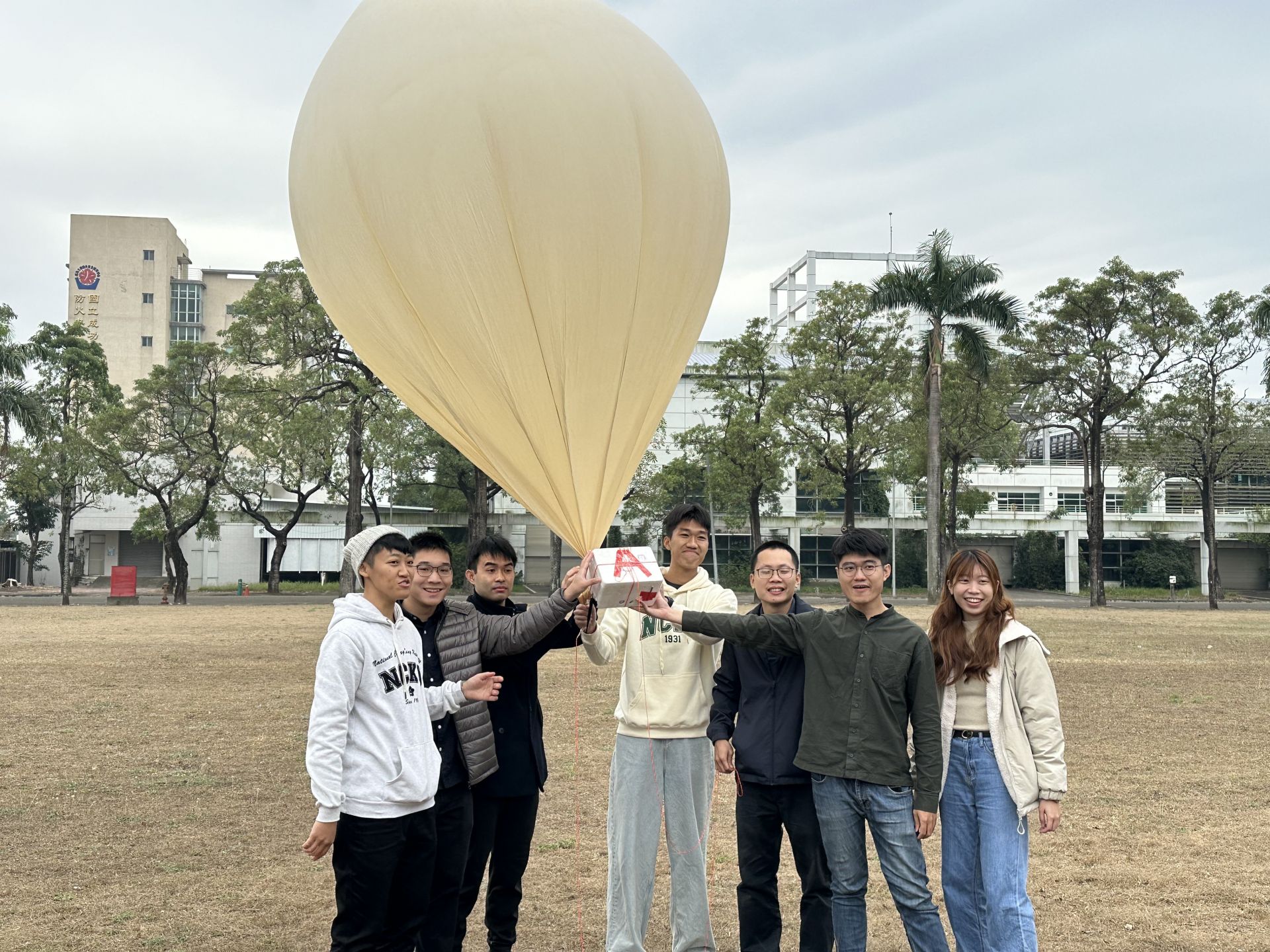
SDG9NCKU's Institute of Space Systems Engineering releases stratospheric weather balloons, marking the initial phase of space missio
View more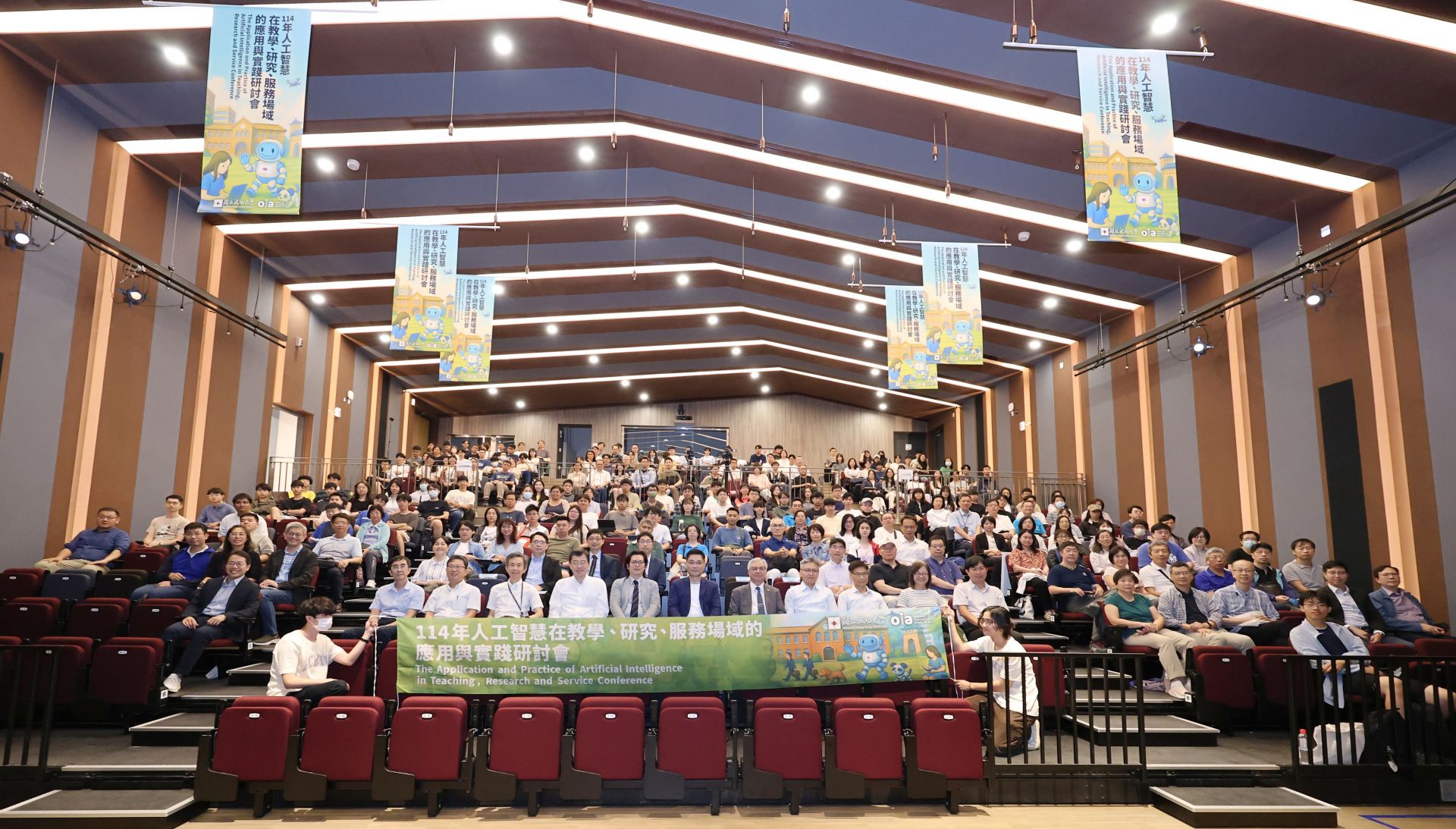
SDG9Pioneering Interdisciplinary AI Applications: Faculty and Students Enthusiastically Shape the Future of AI
View more